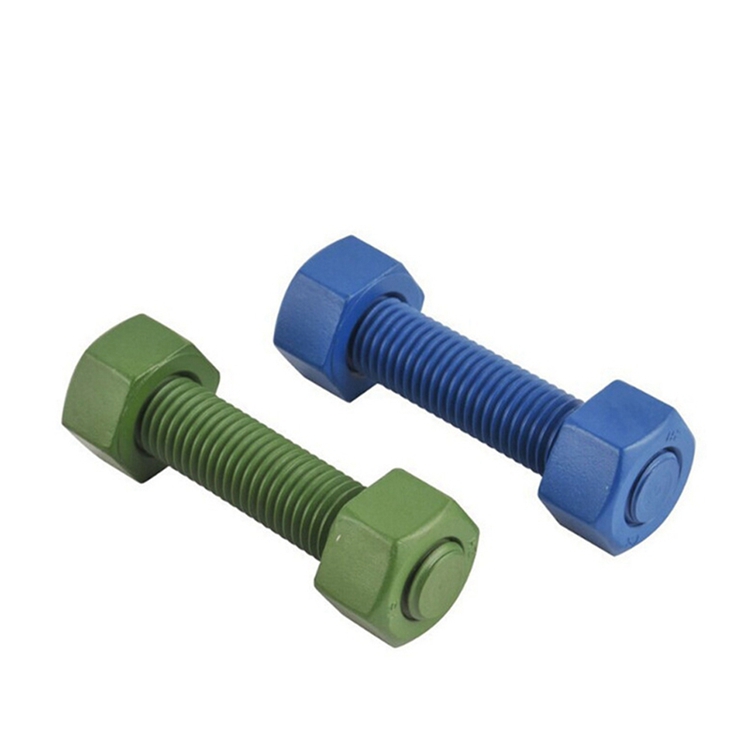stud bolt b7 exporters
វិច្ឆិកា . 21, 2024 15:46 Back to list
stud bolt b7 exporters
Stud Bolt B7 Exporters A Comprehensive Overview
Stud bolts are crucial components used in various industrial applications, particularly in the energy, oil and gas, and construction sectors. Among the myriad of stud bolt options available in the market, the B7 stud bolt stands out due to its unique properties and specifications, making it a preferred choice for many industries. In this article, we will explore the significance of B7 stud bolts and the role of exporters in the global marketplace.
Understanding B7 Stud Bolts
B7 stud bolts are specifically designed to endure high-temperature and high-pressure environments, which makes them ideal for applications in oil and gas pipelines, heat exchangers, and pressure vessels. Manufactured from alloy steel, B7 stud bolts are typically heat-treated to enhance their strength and durability. The standard specifications for B7 studs are defined by the ASTM A193, which ensures that these bolts can withstand extreme mechanical stress and corrosion.
The characteristics of B7 stud bolts include a tensile strength of approximately 105,000 psi and a yield strength of about 95,000 psi. Their robust nature allows them to perform effectively in arduous conditions, which is critical in ensuring the safety and longevity of the structures they secure.
The Role of Exporters in the Industry
As industries become more globalized, the demand for high-quality B7 stud bolts has surged, leading to an increase in the number of exporters specializing in these products. Exporters play a pivotal role in the supply chain by connecting manufacturers with buyers across different regions. This network not only ensures a steady supply of B7 stud bolts but also facilitates the exchange of technology and quality standards between countries.
stud bolt b7 exporters

One of the significant benefits of relying on specialized exporters is the assurance of product quality. Reputable exporters adhere to international quality standards and regulations, conducting rigorous testing to guarantee that the B7 stud bolts meet the specifications required for high-stress applications. This is particularly important in sectors such as oil and gas, where the failure of a component could lead to catastrophic consequences.
Market Trends and Challenges
The market for stud bolts, including B7 types, has seen notable trends in recent years. With a growing emphasis on sustainable practices, there is an increasing demand for high-performance materials that contribute to energy efficiency and reduced environmental impact. Furthermore, advancements in manufacturing technologies have led to the production of enhanced B7 stud bolts that exhibit superior resistance to corrosion and fatigue.
However, exporters face several challenges in the market. Fluctuations in raw material prices, geopolitical tensions, and trade regulations can impact the availability and cost of stud bolts. Moreover, the need for compliance with varying international standards can complicate the export process, necessitating a thorough understanding of regulations in the destination country.
Conclusion
B7 stud bolts are essential components in industries that demand high durability and performance under extreme conditions. Exporters of these critical fasteners play a vital role in ensuring their availability worldwide, thereby supporting the infrastructure and energy sectors. As the demand for B7 stud bolts continues to grow, it is crucial for exporters to navigate the challenges of the global market while maintaining high product quality to meet the needs of their customers. The future of B7 stud bolt exporting looks promising, with potential for growth driven by technological advancements and an increasing focus on sustainability. Leveraging these opportunities will be key for stakeholders in the industry as they adapt to the dynamic landscape of global trade.
Latest news
-
Top Wire Bolts Suppliers | AI-Optimized Fast Delivery
NewsAug.02,2025
-
Top Metric Wood Screw Companies | Durable & Reliable
NewsAug.01,2025
-
Premium Lawn Mower Handle Bolts Supplier | Fast Delivery
NewsJul.31,2025
-
Premium Silver Screws Supplier | High-Conductivity Fasteners
NewsJul.31,2025
-
Silver Screws Supplier: High-Quality Fasteners for Various Industries
NewsJul.30,2025
-
Top Spike Wheel Nuts Supplier - High Quality & Custom Options Available
NewsJul.29,2025
